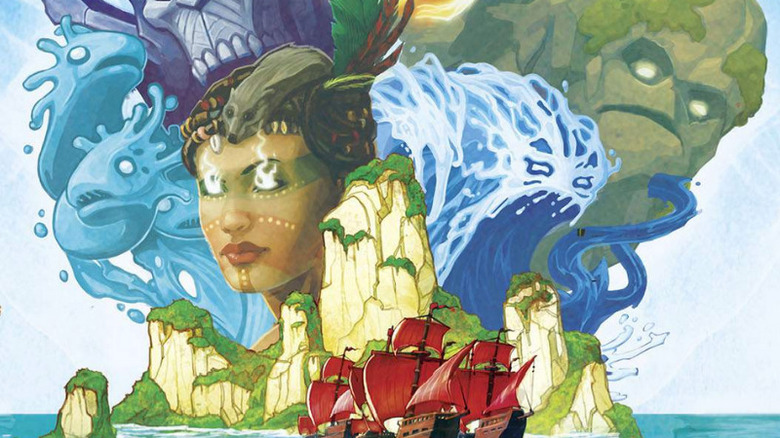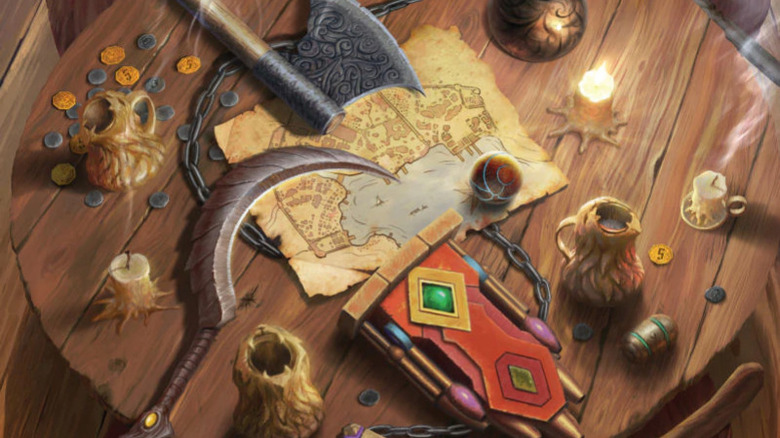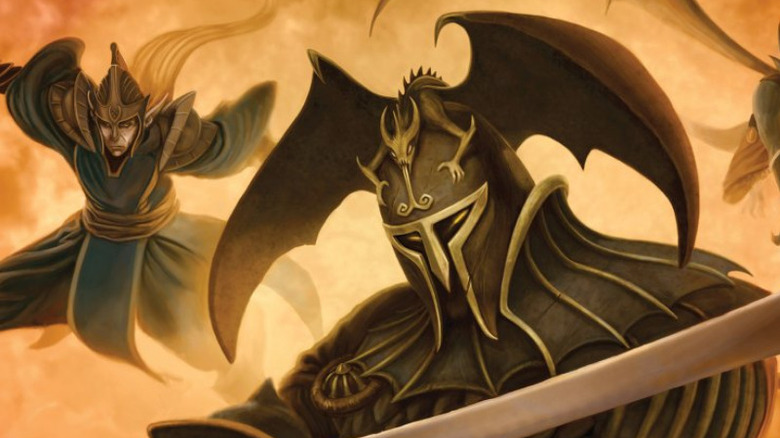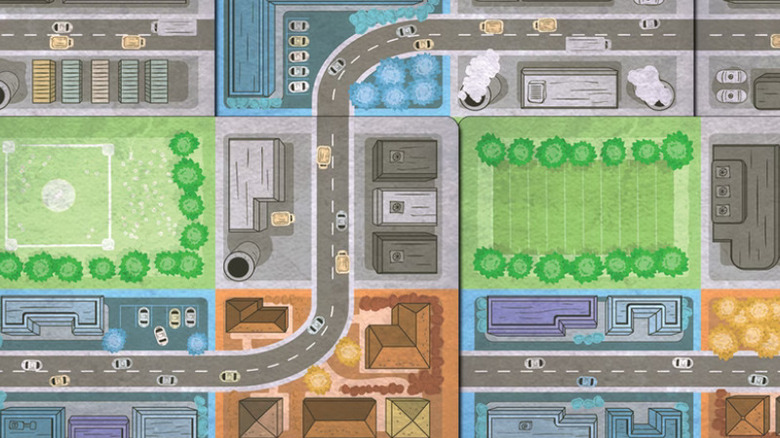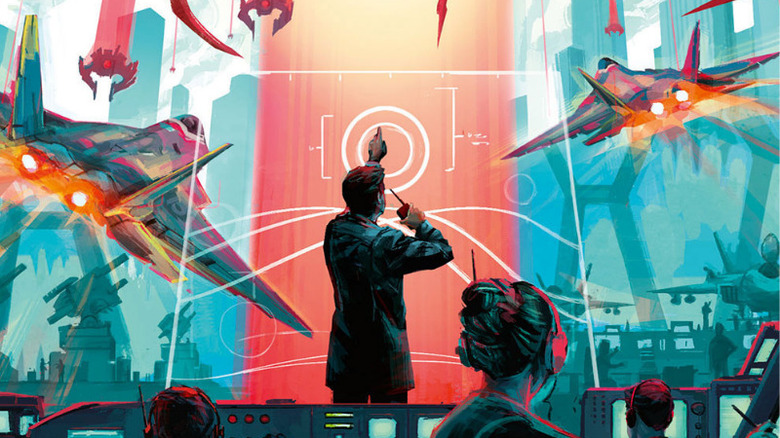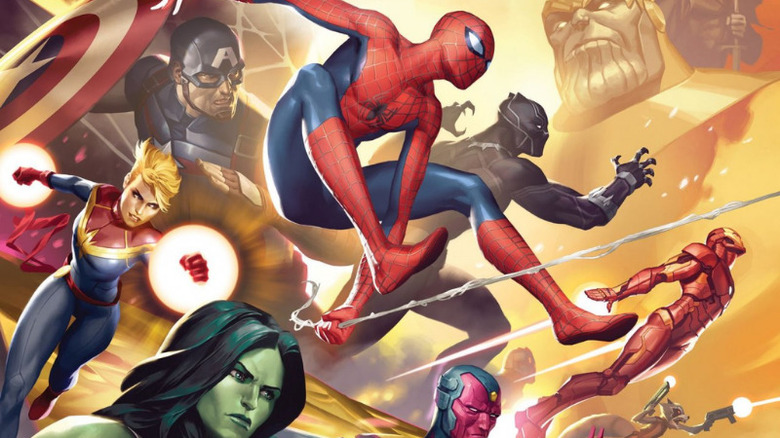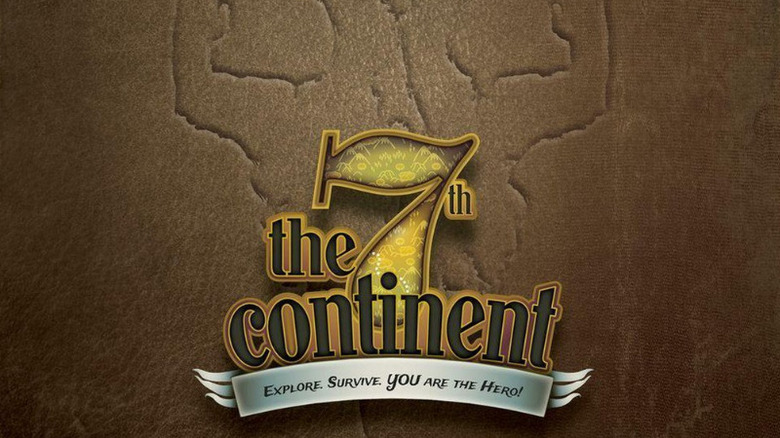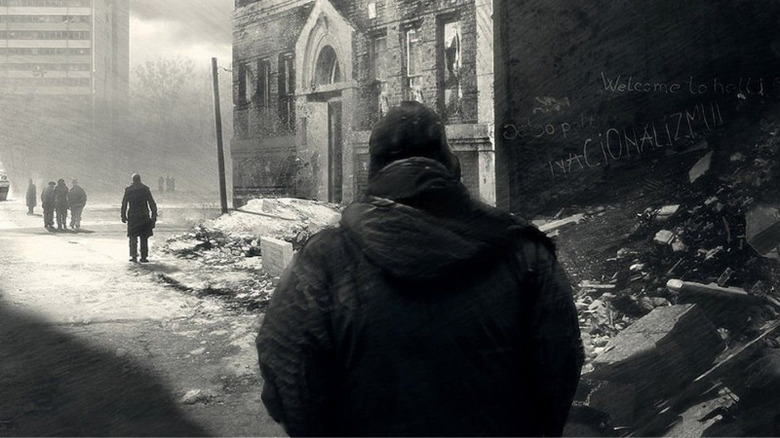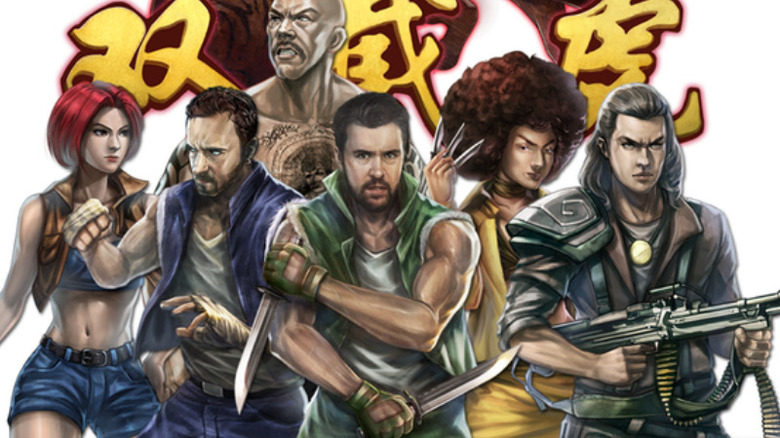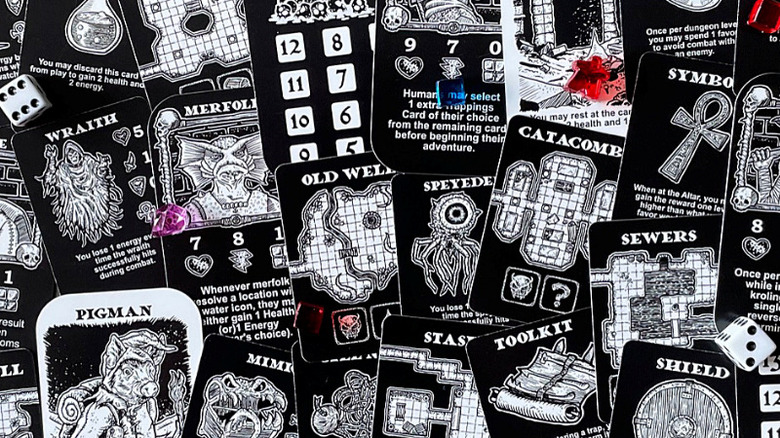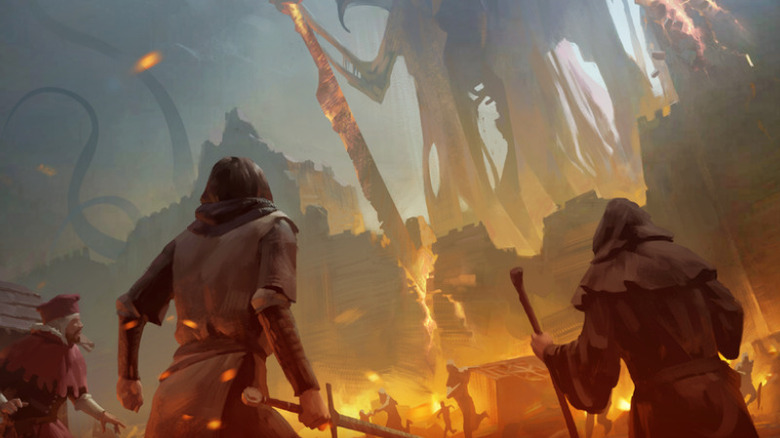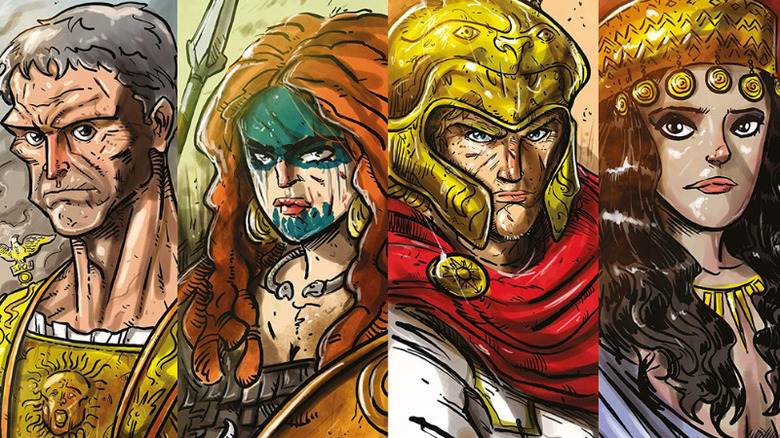The 14 Best Solo Board Games Ranked
While you might be lucky enough to have a variety of board game groups to choose from, there are times when you want to sit down and play a game with your three favorite people: me, myself, and I. Solo board games are a niche even within a niche hobby, but one that has seemingly risen in popularity thanks (or no thanks) to the darkest days of the COVID-19 pandemic.
And with the solo board gaming community on Reddit regularly offering suggestions and tutorials on how to manage your favorite games as a single-player experience, now is a great time to see if the solitary tabletop experience works for you. This list features a combination of games designed for and adapted to a single-player count, which means a lot of thought went into each of these experiences.
Of course, with every one of my tabletop pieces, this list is a combination of games I have played and games that have not made it to my table (but whose rulebooks I am intimately familiar with). Most importantly, however, I've tried to mix up this list just a little to give you some variety in both difficulty and mechanics. Even the most dedicated dungeon crawler could use a little silliness to round out their evenings. So, if variety is the spice of life, you'll be pleased to find a 15-minute title mixed in with all the big-box anarchy.
1. Spirit Island
From "Settlers of Catan" to "Twilight Imperium," the board game industry offers us countless ways to sit down and battle your friends for control of the known universe. But for those who would smash empires than build them, the good news is that the single-player mode in "Spirit Island" is widely considered one of the best.
In "Spirit Island," you take on the role of an island deity protecting the local Indigenous population — your believers — from invading forces (the historical kingdoms of England, Sweden, and Brandenburg-Prussia). Each round becomes a race between you and the board, with your Spirit wielding immense powers and the Invaders spreading across the board with frightening speed. And to ensure you get the most from your many replays, the publishers include explicit instructions in the rulebook on Invader complexity and Spirit pairings.
Many tabletop games escalate in a straight line; you do more of a thing until you hit a trigger for a winning scenario. In "Spirit Island," both the narrative and the win conditions evolve in parallel. Brandish enough Spirit powers — or rain enough hell down on the invading forces — and the Fear levels of your enemies will rise, triggering new (and easier) win conditions. These can include a rare card-based victory where the Invaders are so terrified that they flee the island altogether. As a result, victory and defeat are inexorably linked, ensuring that each solo playthrough of "Spirit Island" feels narratively rich.
2. Gloomhaven: Jaws of the Lion
No list of solo board games would be complete without a version of "Gloomhaven." Considered one of the best solo games since pretty much the moment it hit the market, "Gloomhaven" and its slightly simpler spinoff "Gloomhaven: Jaws of the Lion" are giant, immersive experiences that will keep you coming back to the table again and again. In fact, if you are in the midst of an ongoing "Gloomhaven" campaign, you might even consider getting "Jaws of the Lion" to scratch that itch between sessions.
In "Jaws of the Lion," you play as a wandering hero — or "violent mercenary," depending on your level of self-truth — who takes on quests for the residents of the City of Gloomhaven. Like its older sibling, "Jaws of the Lion" features a unique card-based combat system, allowing you to slowly evolve your character scenario after scenario. Fight monsters, earn gold, buy cool stuff — it's everything you want in an RPG.
Of course, you could probably switch "Jaws of the Lion" with the whole "Gloomhaven" game for a more robust experience, but even someone with my patience for complicated components — I include "This War of Mine" later on the list, for cryin' out loud — has to admit that "Gloomhaven" might be just a little too fiddly for a single player. "Jaws of the Lion" offers a relatively balanced ratio of playtime to construction, a better proposition for the dedicated solo gamer.
3. Mage Knight
With very few exceptions, any feature should serve as a blend of recommendations and rankings than a definitive attempt to quantify games.It's important to find the sweet spot between veteran gamers and newcomers looking to move beyond the same 15 titles kicked around on every other website. Even with this broader mandate, it would be a crime to leave a title like "Mage Knight" off a list of best single-player board games.
While some board games might task you with taking on a major villain, "Mage Knight" has you bending an entire kingdom to your will, rising in fame, and mustering units as you spread your influence across the lands. It's a big, complicated game whose second playthrough will come considerably easier than its first. It's also the sort of game that benefits from a dedicated space. If you have a room where you can leave your copy of "Mage Knight" set up for a few days at a time, all the better.
And if the board game is not enough, there's an entire universe of "Mage Knight" properties – including a full computer game released in 2006 – that will flesh out the lore and expand the universe. While the license has floundered slightly in recent years, the game itself remains wildly popular. In the age of endless adaptation, it seems like only a matter of time before someone tries to license this universe for their own "Witcher"-esque fantasy series.
4. Sprawlopolis
For many of us, solo board gaming is a hobby born out of necessity. Sure, you'd love to play complex games with a big group of friends, but getting three or four people to align their schedules for several months is a tricky proposition. Still, not every game you play by yourself must be a nightmare of complexity. Sometimes, a game like "Sprawlopolis" is the perfect way to kill a little time.
In "Sprawlopolis," you take on the role of a city planner trying to juggle the development demands of the city council. Starting with a deck of 18 cards – three of which will become the scoring conditions for the current playthrough – you take turns drawing and playing cards to maximize the potential of your city (and minimize the area bogged down by roads). Once all 15 tiles have been placed, check your board for valuable zones – for example, park blocks located in the city's interior or commercial blocks wedged between residential blocks – and you have your final score.
With each card doubling as both a game piece and a win condition, "Sprawlopolis" offers tons of variety in how your cities come together. With so many modern board games offering this same combination of patterned scoring – think "Cascadia" or "Paris: La Cité de la Lumière" – "Sprawlopolis" is a perfect way to exercise a particular set of mental muscles in between more complex play sessions. Just look out for those pesky roads.
5. Under Falling Skies
It finally happened. Aliens have made first contact, and rather than share resources or introduce us to the prime directive, they've decided to wipe us off the map. Thankfully, mankind is prepared to make one last stand against the mothership. If this all sounds a little bit like "Independence Day" to you, then you're probably the target audience for "Under Falling Skies," a dice-based strategy game that requires you to fend off descending forces.
On your turn, you will roll and place your die to activate your defenses, perform research against your opposition, or dig deeper into your underground base (increasing the options available to you each turn). And since your dice selections determine how far the enemy ships will advance, each turn often requires a balance of offensive and defensive considerations. But be careful: the mothership is also advancing, and each turn brings with it a flurry of adverse effects on your city.
With obvious comparisons to "Space Invaders" and the campaign elements of the "XCOM" series, "Under Falling Skies" allows you to live out your alien invasion fantasies while tapping into the dice placement mechanic that powers so many great games. And as the rare game to be explicitly designed and released as a single-player title, "Under Falling Skies" does not require any concessions or rule adjustments to support a solo playthrough. It is just some aliens and a whole bunch of explosions in the sky. Now go make President Whitmore proud.
6. Marvel Champions: The Card Game
I'm pretty easy as far as people obsessed with tabletop adaptations of film and television properties go. Make a good game – with unique mechanics and some fun design elements – and I don't care if it's based in the universe of "Star Wars" or "Storage Wars." Of course, when designers can draw on our generation's most significant media empire in "Marvel Champions: The Card Game," it's probably a lot easier to attract most fans to the table.
In each playthrough of "Marvel Champions," you will pick a hero and villain to wage a dramatic battle over the streets of [insert metropolis here]. Throughout a game, your character will alternate between hero and mild-mannered alter-ego, allowing you to rest up between battles (but allowing the supervillain to advance their nefarious schemes). If you defeat them before they hatch their plan, you win.
While there are many other excellent card games in the marketplace, part of the appeal of "Marvel Champions" is the ongoing support of Fantasy Flight Games. This is a living card game in the truest sense; there are dozens of hero and villain combinations available to players – and more on the way – allowing you to expand your Marvel battles well beyond the core set of Spider-Man and friends. Of course, it's hard to continually add onto an existing property without eventually watering the whole thing down, but Fantasy Flight has a true gift for expansion in the best possible way.
7. The 7th Continent
While video games and tabletop games serve very different purposes in my collection, it is always fascinating to see how these two mediums intersect. For example, open-world games like "Subnautica" and "Valheim" present brutally complex survival scenarios for characters with giant maps and scarce resources. And it is that same approach to exploration that seems to be captured in "The 7th Continent," a storytelling game that plays in the same general corner of the survival sandbox.
The year is 1907, and upon returning from an expedition to the mysterious seventh continent, your character soon realizes they are suffering from a terrible curse. Their only resort is to venture out from the mainland and search for a cure. While not exactly a storybook game, "The 7th Continent" can be billed as a choose-your-own-adventure narrative, pulling from over 600 numbered adventure cards to move your story along. In each game, you will traverse the map and overcome challenges using your explorer's equipment and action cards.
And here's the twist: your action deck also doubles as your life force, making each turn a painful decision between drawing cards to complete challenges and conserving cards to preserve your life. This card management mechanic adds an element of survival to "The 7th Continent," requiring you to perform routine tasks (like hunting) to keep your action deck in good shape. Do you upgrade or move one step closer to lifting your curse? The answer to that is quite literally tabletop life or death.
8. This War of Mine: The Board Game
When we talk about board games, we often reduce their qualifications to mechanics and themes. Increasingly, though, board games seek to teach players something about the world about them. In the case of Awaken Realms' "This War of Mine," a game can be a valuable tool for teaching empathy to those unaffected by violent conflict around the world.
Based on the popular video game of the same name, "This War of Mine" places you in the shoes of a group of survivors trapped in a warzone. Your only goal is to survive – to keep the few members of your community alive until a ceasefire has been announced. To accomplish this mission, you will need to lean on the pre-war strengths of your survivors to defend your building against looters and scrounge for food while also balancing the physical (and emotional) states of your survivors.
At its heart, "This War of Mine" is a game of never-enough. With limited options available to you each turn – and the threat of starvation, illness, and addiction always just around the corner – the storybook elements of the game often force you to make the least-worst decision in any given situation. It might be difficult to describe "This War of Mine" as a fun game – and certainly not one you would want to play in a group setting – but it does imbue a nakedly emotional resource management game with a timely message of humanitarianism.
9. Street Masters
Colonialism; historical deduction; extraplanetary math. Don't get me wrong, these are all fascinating concepts for board games, but sometimes you just want to play a game where you punch some bad guys – and then overclock your character and punch them even harder. If you are ready for something a little lighter on concept and a lot heavier on brawling, then may I introduce you to "Street Masters," a miniatures game based on 8-bit titles of yesteryear.
In "Street Masters," your hero will take on a boss character – and an army of minions – across a variety of different stages. Then, through a series of video game-style attacks – punch damage, kick damage, and grapple damage – you will alternate between fighting and blocking as you carve a path of destruction to the final boss. Once you have successfully blocked enough attacks, you can "charge" your hero, giving them a temporary power boost and your character's signature action.
While "Street Masters" offers the now-ubiquitous combination of free play and story modes, the game also introduces a hero mode that allows you to explore a bonus stage explicitly tied to your chosen character. By personalizing the story mode just a little, the developers lean even further into the theme and turn a dime-a-dozen brawler into an episodic story of revenge or heroism. This is the kind of "Double Dragon" clone everyone can get behind.
10. Black Sonata
For centuries, historians have tried to deduce the identity of the Dark Lady, the mysterious character from Shakespearean sonnets. But, with several leading historical contenders and no real consensus, this has remained a mystery to the ages. Until, of course, you sat down to play "Black Sonata," a wildly inventive social deduction game – or antisocial deduction game, as the case may be.
In "Black Sonata," you will move your token around 1600s London, exploring the local taverns and theaters as you hunt for the mysterious Dark Lady. Using a combination of clue cards and stealth cards, you will attempt to deduce the object of Shakespeare's obsession, even as the foggy streets of London make this difficult. Much like games like "Fury of Dracula" and "Letters From Whitechapel," unpacking the patterned movement of your opponent can be tricky, but everything in "Black Sonata" is designed for one player and one player only.
Winning "Black Sonata" requires you to identify the characters of the Dark Lady, which gives the game its replay value. Once you know some of the attributes of each character, winning would be a foregone conclusion. And with a variety of scoring outcomes and game modes to choose from, you will also have plenty of reason to return to the game and try to beat your previous score. Can you live with being a "chimney-sweeper," even in victory? Or would you instead angle for the role of the "immortal bard" themselves?
11. Leaving Earth
If you are a NASA buff – or follow the right motivational accounts on social media – you're probably familiar with Margaret Hamilton, the famous Apollo engineer who handwrote the code to put a man on the moon. Because there's a board game for everything, there's a board game for that, too. "Leaving Earth" is an engine-building game that requires you to math out your own expeditions to the stars – and hopefully back (if your astronauts have anything to say about things).
In "Leaving Earth," you will take on the role of a national space program in 1956. As your counterparts around the world ramp up their rocket programs and astronaut training, you are determined to explore the solar system first. You will use your government funding to plan missions, collect samples from planets and moons, and ensure that your crew gets around the solar system and back without running out of supplies or oxygen.
If you pick up a copy of "Leaving Earth," do not expect a lighthearted playthrough. Nothing comes easy in this game; from assembling the component needed to launch your spacecraft to calculating the resources to perform an extraplanetary maneuver, "Leaving Earth" is an exercise in risk-reward equations. But games with many decisions and complex win conditions often make for the best single-player titles, and "Leaving Earth" has been a favorite among solo gamers since its 2015 release. Just don't be afraid to break out your middle school multiplication tables to make this one work.
12. Tin Helm
The board game industry is awash in good RPGs and dungeon crawlers, but many come at a hefty price point. So if you want to fight monsters and loot dungeons, you better be ready to drop more than a hundred dollars for the latest hybrid game models and high-end miniatures. Or you can spend a whopping $16.99 to purchase "Tin Helm," a dungeon crawler that fits neatly in your back pocket.
Drawing on classic pen-and-paper RPGs for inspiration, "Tin Helm" allows players to select a unique race and class before heading into the dungeons in search of adventure. From there, you will search rooms, battle enemies, and slowly make your way through several levels of the dungeon before facing down the final boss. And like in any good RPG, you will need to closely monitor your health and energy as your enemies become increasingly difficult with time.
The economy of the components is obviously the biggest hook with "Tin Helm" – the entire game is roughly the size of a mint tin – but don't underestimate the gameplay. With so many travel games dealing with abstract themes and simple gameplay, it's wonderful to find a more robust RPG that still sticks within the confines of an airline tray. And since each game from Grey Gnomes Games comes from the mind of founder Jason Glover, there are more games like "Tin Helm" to be found on their website if you tire of this one.
13. Destinies
When I look back on this period of tabletop games, I will probably think of "Destinies" as the game that eased me into the era of digital board games. With a handful of high-profile designers and titles hitting the market these past few years – including "The Dark Quarter," another game co-developed by the team behind "Destinies" – the wrong introduction to the form could've turned me off those games forever.
"Destinies" is an app-assisted game, which means that your tabletop essentially serves as a physical overlay for the virtual world (or vice-versa). Each turn, you will visit locations and take actions, with the "Destinies" app determining the outcome of your adventures. Most in-game events are accomplished through a series of skill checks; as a result, your primary goal as a player will be to level up your skills to make your skill checks – intelligence, dexterity, and power – as easy to pass as possible.
Technically, "Destinies" is a multiplayer title, but the game shines when you get to pop in a pair of headphones and go on an app-assisted adventure through the hinterlands. In my initial playthrough, I hunted down a werewolf that was terrorizing the local community and got what – as a millennial veteran of the video game industry – felt like the "good, not great" ending of the scenario. And while the combination of digital and physical at times felt a little redundant, there was something fun about having a physical environment to manipulate my narrative adventure.
14. Imperium Classics
No list of solo board games would be complete without a grand civilization-builder. But with all due respect to "Civilization" or "Through the Ages," not every solo game needs to come with a million components. That is the beauty of a game like "Imperium: Classics," which holds its own in complexity while offering a more streamlined play area. It's perfect for the player who is more interested in playing a game than setting it up.
In "Imperium: Classics," each player will take on the role of an ancient civilization, cycling through three phases – activate, innovate, or revolt – with related card actions. Eventually, your society will be prompted to score or forced into collapse, each of which moves you into the endgame turns. Each nation also features a built-in difficulty rating, letting you know who to pick up on your first playthrough versus your hundredth. Still new to the game? The Persians or Romans will help you learn the mechanics. Ready for a challenge? Bring on the Greeks.
And while I've chosen "Imperium: Classics" to adhere to the rules of list-making, the team at Osprey Games also makes it easy to merge the kingdoms in this game with those of "Imperium: Legends," which includes empires like the Arthurians and the Atlanteans. So whether you want your travels through history to be more factual or mythological, you can cater a playthrough of either "Imperium" game to meet your needs.

